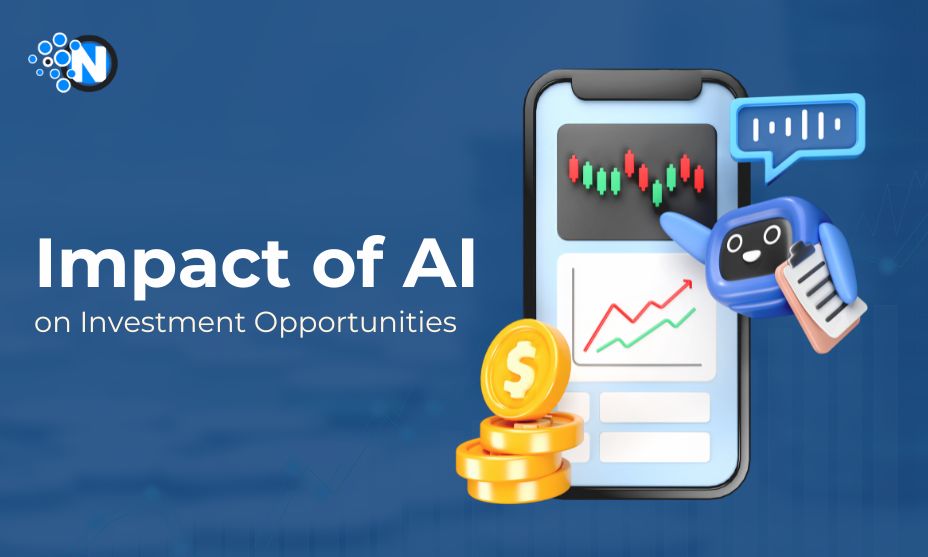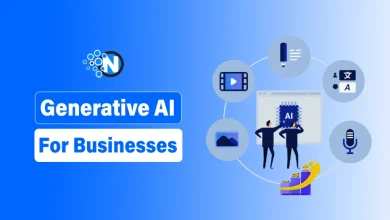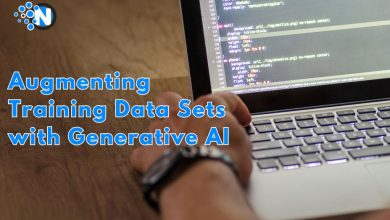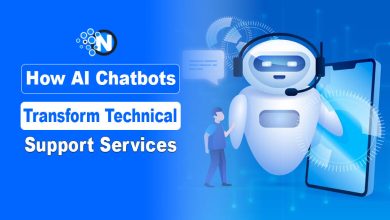The Impact of AI on Investment Opportunities

Artificial intelligence changes various sectors, including finance, altering how investments are identified, analyzed, and managed. Machine learning algorithms which can analyze countless types of data being developed, capital market instruments give the investor some tools for decision-making that possess the potential of greater profits.
Implementation of machine learning algorithms into the general area of investment may be seen as the new phase of investment that combines traditional with novel approaches to discover new potential lucrative avenues. With AI constantly advancing, its effect on investment decisions and the market environment is contingent on both adversities and advantages to the investors.
Understanding AI in Finance
AI stands for Artificial Intelligence, which means the process of machines doing the same actions as human beings (and especially computers) can do. Analyzing traditional data, predicting trends and executing trade algorithms are some of the AI tools that are frequently used in the financial sector with very little human interaction. Through using these algorithms, investors will be able to process large amount of data in a time scale far superior to humans’ abilities, thus unveiling further insights and opportunities in markets that previously could not be realized.
Alongside AI, predictive analytics, which is one of the profound areas of impact, is the key area where AI has made an outstanding contribution. Utilizing past market data, economic indicators, and any other relevant info, AI machines use them to predict future market trends to a high precision. As already stated, investors can detect upcoming market movements by capitalizing on AI-powered data analytics that may lead to the timely adjustment of investment strategies in a bid to maximize gains and minimize losses.
Artificial Intelligence’s Influence on Financial Analysis
Investors are always seeking an edge in “guessing” the market’; AI does precisely that by providing an edge through sophisticated data algorithms. Algorithms of artificial intelligence are working well, combined a huge volume of data to discover patterns that human analysts can not see. One of the features of such algorithms is that they have a great ability to respond to the signals both from rigid types of data, such as structured types of data, and from loose types of data, such as unstructured types of data.
These algorithms help in forecasting shifts in market conditions which consequently assists to adjust strategies proactively. Thanks to the data-driven approach, more accurate and less intuitive decision making processes become evident. Furthermore, this kind of approach allows avoiding predictive models that were proven unreliable in the past.
Reinventing Risk Management
The application of AI extends significantly to risk assessment, introducing precision where once there was only estimation. AI tools offer a nuanced view of investment risk by incorporating multiple variables and forecasting potential outcomes with remarkable accuracy. This finer understanding permits investors to tailor their portfolios with an optimal balance of risk and reward, a balance tailored to their tolerance and objectives. Minimization of unnecessary risks without sidestepping potentially lucrative opportunities marks a shift in how portfolios are constructed and managed.

Customization of Investment Solutions
Personalization stands as a notable benefit brought forth by AI. Algorithms tailor investment solutions to meet specific investor goals and constraints, a stark departure from the one-size-fits-all approach that once prevailed. AI’s capability to analyze individual financial situations in the context of broader market trends allows for the crafting of portfolios that align closely with personal ambitions, risk tolerance, and time horizons.
Enhancing the Speed and Efficiency of Transactions
AI’s impact on the operational aspect of investing, specifically transaction speed and efficiency, cannot be understated. High-frequency trading algorithms represent the apex of this advancement, executing trades at a speed and volume beyond human capability. This efficiency not only captures fleeting opportunities but also contributes to market liquidity and stability. As transaction costs decrease, the barrier for entry lowers, making investing more accessible to a broader audience.
The Emergence of Automated Advisors
Robo investing has made financial advice more accessible through AI-driven technology, offering individualized guidance at a relatively lower cost compared to traditional financial planners, who are often expensive. Such platforms had integrated algorithms to draw and handle investment portfolios, detect the right moment for adjusting strategies, and provide clear information to investors concerning their financial standing. The ease and the price of automated advisors have not only deceased financial guidance to almost anyone, but also have made it easy to get professional advice for people who could never afford to get it before.
A New Opportunity: The Private Equity Fund
Interest in a specialized Private Equity Fund has surged, with AI playing a pivotal role. Often inaccessible to the average investor, such funds have witnessed an evolution with AI integration. AI enhances fund managers’ ability to identify and evaluate potential investment opportunities, especially in nascent or rapidly evolving sectors. Moreover, AI-driven analysis provides deeper insights into a company’s performance, growth potential, and competitive terrain, allowing for more strategic investment decisions.
Ethical Considerations and Transparency
The blend of AI in investment strategies brings forth ethical considerations, particularly regarding data privacy and algorithm transparency. Investors voice concerns over the use of their data, wanting assurance that their information is secure and not misused. Similarly, the call for transparency revolves around understanding how AI algorithms make decisions, an understanding that assures investors of the absence of underlying biases influencing their investments.
Future Outlook: The Convergence of AI and Human Insight
Predictions point towards a future where AI and human expertise combine rather than compete, a symbiosis enhancing the investment landscape. Human insight’s nuance and AI’s data-processing capabilities present a comprehensive approach to investment decisions. This partnership promises to refine investment strategies further, adapt to changing markets, and cater to investor demands for personalized and ethical investment solutions.
Conclusion
The integration of artificial intelligence into the investment arena heralds a new era of opportunity, efficiency, and personalization. From altering how financial analyses are conducted to revolutionizing risk management and transactional operations, AI’s imprint on investment strategies is memorable. As this technology advances, its ethical use and the harmonious blend of AI with human intuition will shape its lasting impact on the investment world.




